Mental Health Therapy No Appointment Needed: The Power of SelfSync Therapy Digital

Have you ever felt the frustration of wanting to prioritize your mental health but hindered by the challenge of syncing your schedule with your therapist's? The struggle of waiting, scheduling only to miss your sessions because it was at an inconvenient time. And then you go into your endless cycle of complaining about how it’s not your fault and you shouldn’t have to pay for that session – it's a scenario many have experienced. However, the game is changing, and the solution lies in the revolutionary SelfSync Therapy Digital, where no appointments are needed.
The Toll of Missed Appointments on Mental Health
The cycle of missed appointments can be deeply discouraging for individuals seeking therapeutic support. When rigid scheduling becomes a barrier, clients often perceive it as a lack of understanding or care from their therapists. The frustration of waiting, scheduling, and then missing sessions can lead to a sense of disconnection and even abandonment. This, in turn, contributes ...
Money Mindset vs Money Mentality: Decoding the Essence of Financial Decision-Making
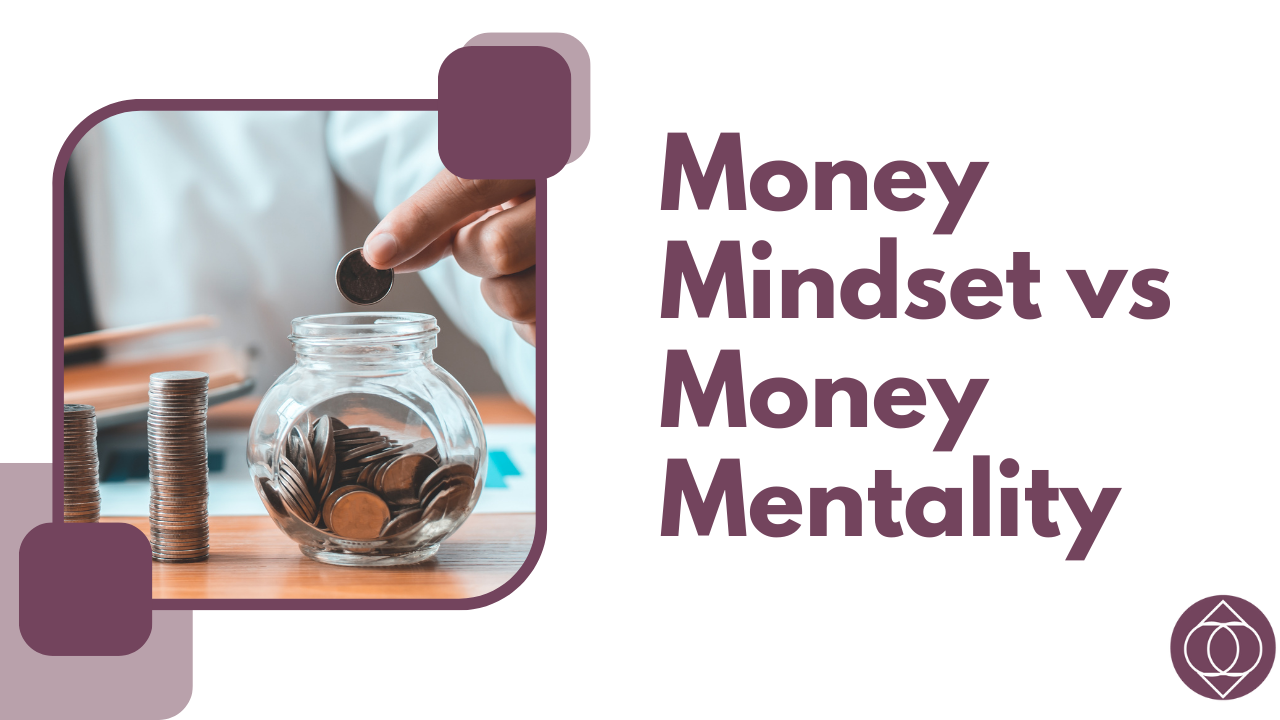
Mike Tyson said, “Everyone has a plan until they get punched in the face.” Figuratively speaking, sometimes life punches you in the face. When that happens, you shift out of logic where your plan is stored in your brain and into fight or flight where survival tactics are stored in your brain. In the realm of self-help, coaching, and financial advisory, the notion of cultivating the right "money mindset" has echoed endlessly. Which is why I need to decode the difference between mindset and mentality.
Beneath the surface lies a profound truth: financial decisions are heavily influenced by emotions, not just conscious thinking. In this article, I’ll unpack the fundamental contrast between Money Mindset and Money Mentality. I’ll shine the light past the surface, into the distinct factors that shape and guide most financial decisions and behaviors.
The Emotional Foundation of Financial Choices
While the concept of Money Mindset tends to dominate discussions, it's crucial to recognize th...
Challenging Money Myths: Understanding the 6-Common Societal Programs that Shape Our Money Beliefs and Emotions
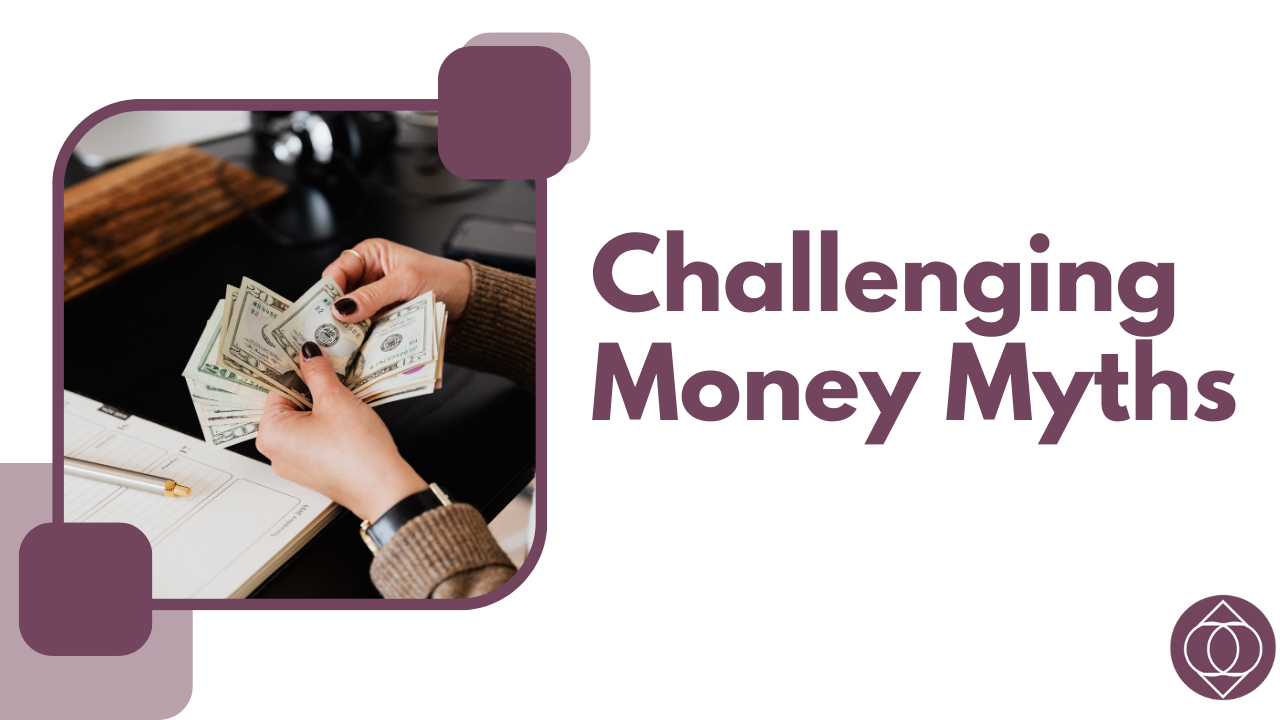
What messages did you hear about money when you were growing up? This is a question you need to ask your clients so that you know what money programs are running in their subconscious. Certain myths have woven themselves into the collective consciousness of many Americans, but also around the world.
These misconceptions, often rooted in societal constructs, influence our perspectives on wealth and success. The American Dream itself is a myth, yet people imagine creating it as if it’s one singular idea. They don’t realize they can create a dream based on what’s important to them, not based on what society says is right. I dissect these myths in this blog article by going into the origins and implications, while endeavoring to replace misconceptions with awareness.
Myth 1: You Have to Work Hard For Money
The adage "hard work is the key to success" has been passed down for generations. It sounds good in a speech, but it’s not true. Hard work isn’t the only part of the formula for weal...
How to Tell if Your Clients' Need Financial Therapy
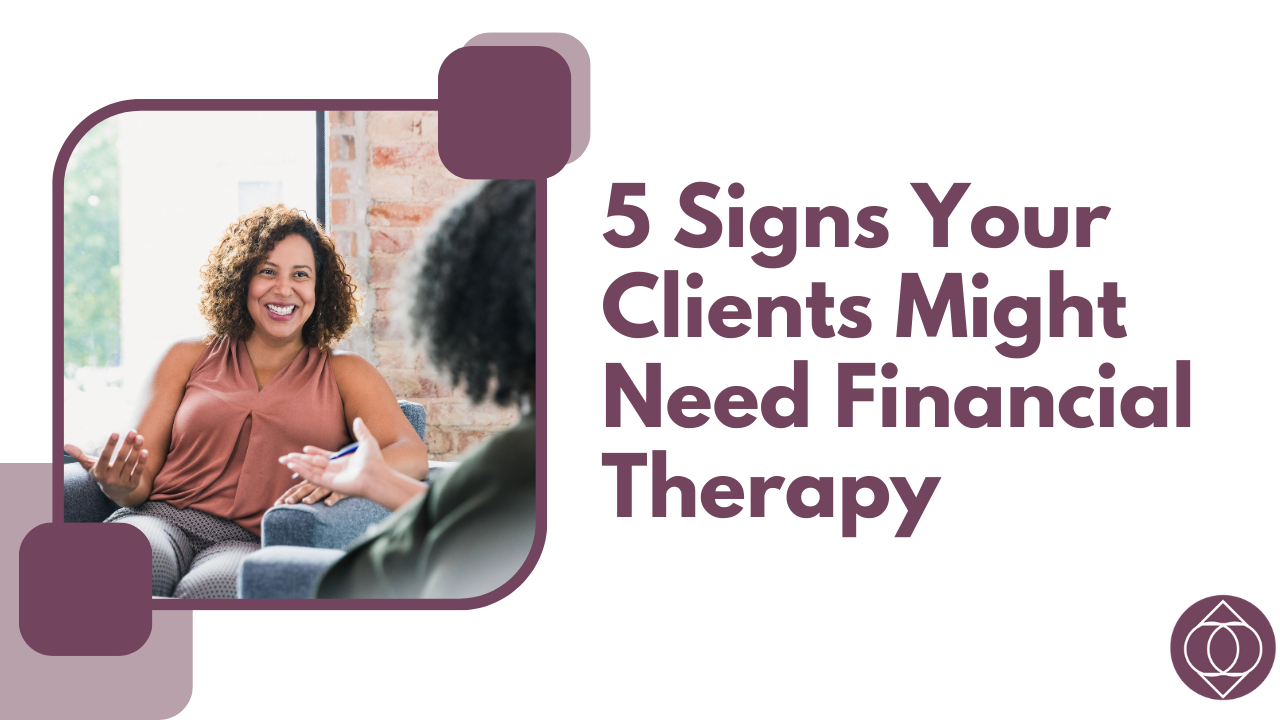
A question I’m often asked is, “how do I know if my clients need Financial Therapy?” It’s pretty easy to tell for me, but I’ve also been doing this for over a decade. It may not be as simple for others to tell. Usually, I respond with a question, “are your clients making emotional decisions that cost them, and you, money?" Surprisingly, the answer is usually a resounding "yes." But there are times when that question may be too vague.
If you don’t know when your clients need Financial Therapy, they may not either. Which means they continue to do the same things that keep costing them and you money. That’s why I’m sharing 5-signs you can look for to determine if your clients need Financial Therapy. Later we can discuss how to guide them to Financial Therapy, but for now let’s start with gaining awareness as the trusted advisor.
I recently asked a colleague this question and he answered no. Which made me believe that he may not have understood the question. In my professional experien...
Lonely-Based Emotions: Trigger Your Client's to Rethink Their Legacy Plan

I've conducted extensive research on the emotional aspects of money. As the leading National Certified Counselor specializing in Financial Therapy for wealthy professionals, with over 20 years of experience in the financial services and mental health industries, I’ve learned a thing or two about Money Emotions that I'd like to share with you.
Among the various Money Emotions that affect our clients, Lonely-Based Emotions stand out as particularly impactful and often underestimated. First, I’ll recap a little about the four common types of money emotions. Then, I'll focus on Lonely-Based Emotions and how they can hinder your clients' wealth-building plan or, with the right approach, aid them in building a lasting legacy.
In the last 4-blog post we’ve been building awareness around financial emotions, we have previously discussed Fear-Based, Lack-Based, and Lust-Based Emotions. But the emotions that I see most when working with wealthy clients are Lonely-Based Emotions. The four most c...
Understanding Lust-Based Emotions: The Driving Force Behind Your Financial Decisions
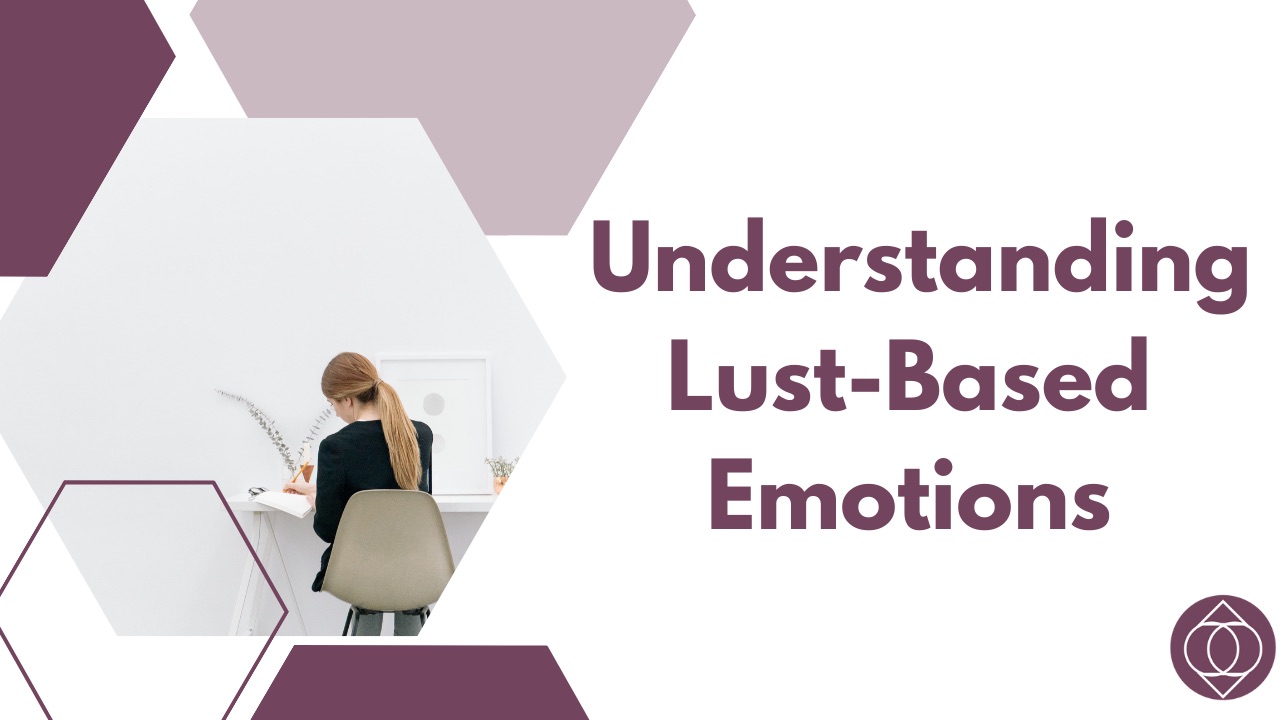
Lust-Based Emotions are a group of intense feelings that stem from the desire for external rewards, often triggered by Lack-Based Emotions. The four most common Lust-Based Emotions are greed, guilt, shame, and desperation. I’ll address each one but before I do, let's address the question so many have asked me about jealousy.
While jealousy is a powerful emotion, it is considered a secondary emotion linked to Lack-Based Emotions, where we compare ourselves to others and perceive something we desire as unattainable for us. The feeling that the other person doesn’t deserve what they have may accompany the comparison, triggering feelings of jealousy.
Humans feel emotions and that is ok. The goal isn’t to rid your clients of emotions, but to make them aware of when those emotions are getting in the way of them executing on their financial plan. The ultimate goal as it relates to emotions, is to make sure they don’t get stuck in their emotions. When they’re stuck and unable to move forwa...
Is it Mindset: Navigating Lack-Based Emotions for Growing and Preserving Wealth
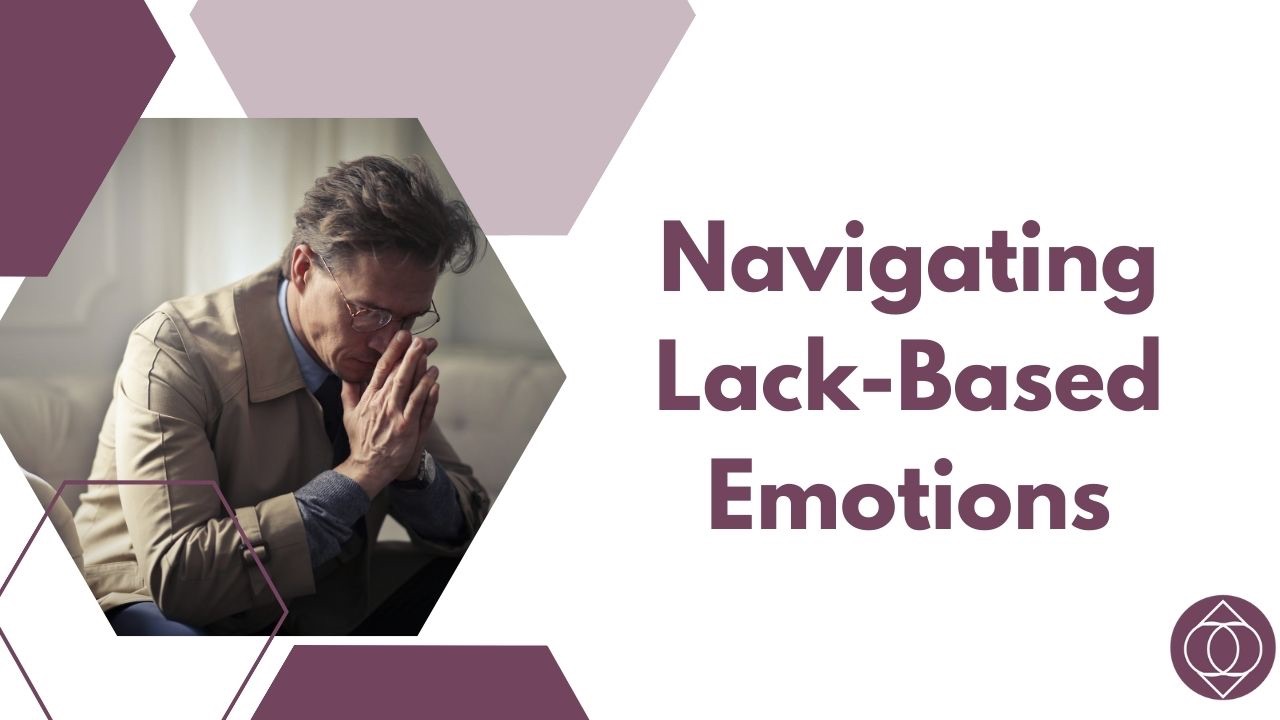
Most people call it mindset. I call it mentality. Why?
Because mindset is all about what’s happening in your conscious brain and when your clients experience Lack-Based emotions they come from the subconscious brain. At Presidential Lifestyle we label the subconscious brain as mentality. These thoughts, feelings, and the behaviors that go along with them have been going for years. Long before they were your client.
In the world of financial advising, professionals often encounter the intricate realm of emotions tied to money. In the previous blog post, we explored Fear-Based Emotions. Today, let's talk about Lack-Based Emotions. You may have heard of this referred to as limiting beliefs. And you may not think your clients have them because they already have financial success. But what if they could have more. And by more I mean more than money; meaning, purpose, personal success, fulfillment.
Lack-Based Emotions
In my research I’ve narrowed Lack-Based Emotions down to four common...
Overcoming Fear-Based Emotions: Guiding Wealthy Clients to Emotional Clarity

Understanding the most common fear-based emotions your clients experience is crucial to helping them trust you and sleep better at night. Helping them to step away from the primitive and subconscious brain is key to encouraging logical decision-making. While you can't control your clients, you can provide them with tools and support to cultivate a Calm Optimal Brain State (as we call it in SelfSync Financial Therapy).
What you may not realize is that your clients have fears they aren't sharing with you—not because they're keeping secrets, but because they struggle to articulate their feelings. Society's mixed messages often lead to misunderstandings and suppressed fears. Your clients might be confused, and they need your guidance.
Innate Fears
Fear, an innate emotion we are born with, takes various forms as we navigate life's complexities. The two fears we are born with are the fear of the unknown and the fear of falling. Any other fear is taught to us by our loved ones or stems fro...
Nurturing Emotional Wealth: A Financial Professionals First Step in Unlocking Hidden Emotions Behind Money
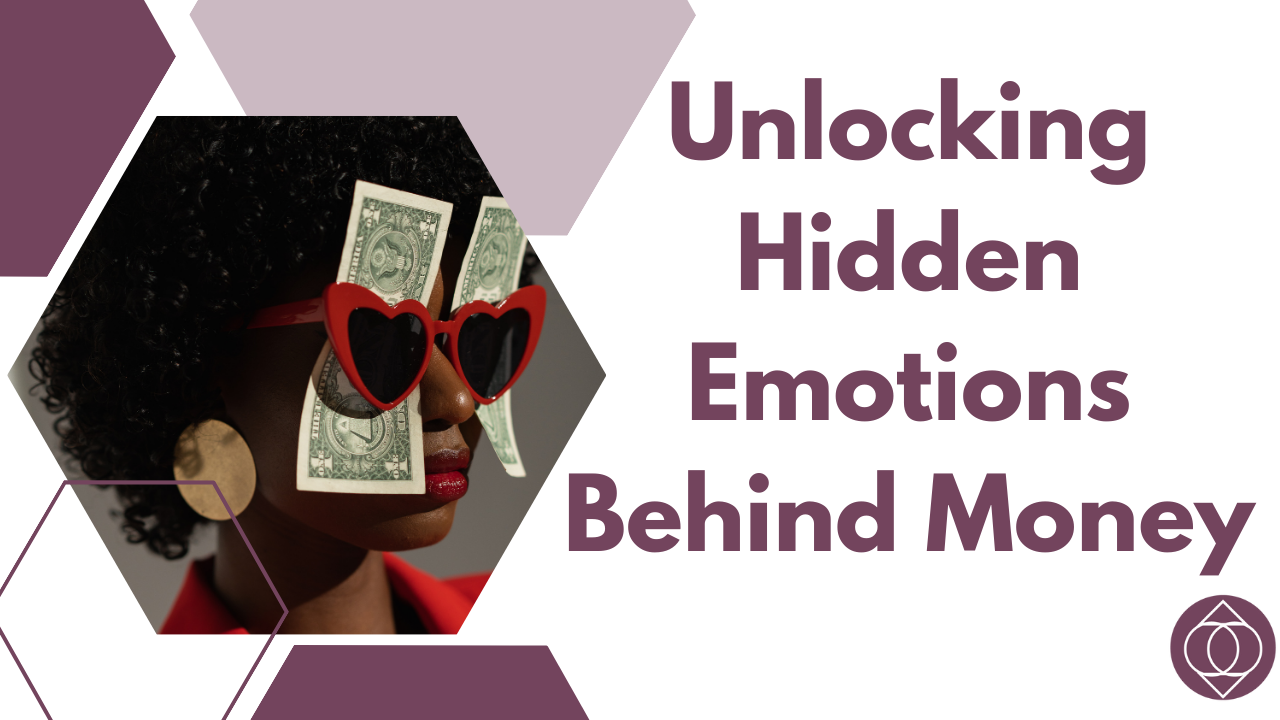
No matter how much wealth your clients possess, it's never enough to shield them from a range of challenging emotions. As a financial professional catering to the affluent, you know that money doesn't always provide a complete sense of fulfillment. The emotions that come into play - sadness, loneliness, guilt, and feelings of inadequacy - can be overwhelming. Surprisingly, your clients might turn to their wealth in an attempt to find solace, but is it truly the answer?
Money can absolutely buy the things that make you happen and give you the time freedom to spend with the people who mean the world to you, but having wealth doesn’t guarantee happiness. For the past two decades, I've dedicated myself to researching money emotions, understanding their impact, and helping financial professionals like you address the issues that money can't fix. I'm Kiné Corder, the lead National Certified Counselor with a special focus on Financial Therapy for wealthy business owners.
Today, I'll introdu...
The Secret Sauce to Success: How to Embrace Insanity to Create a Presidential Lifestyle
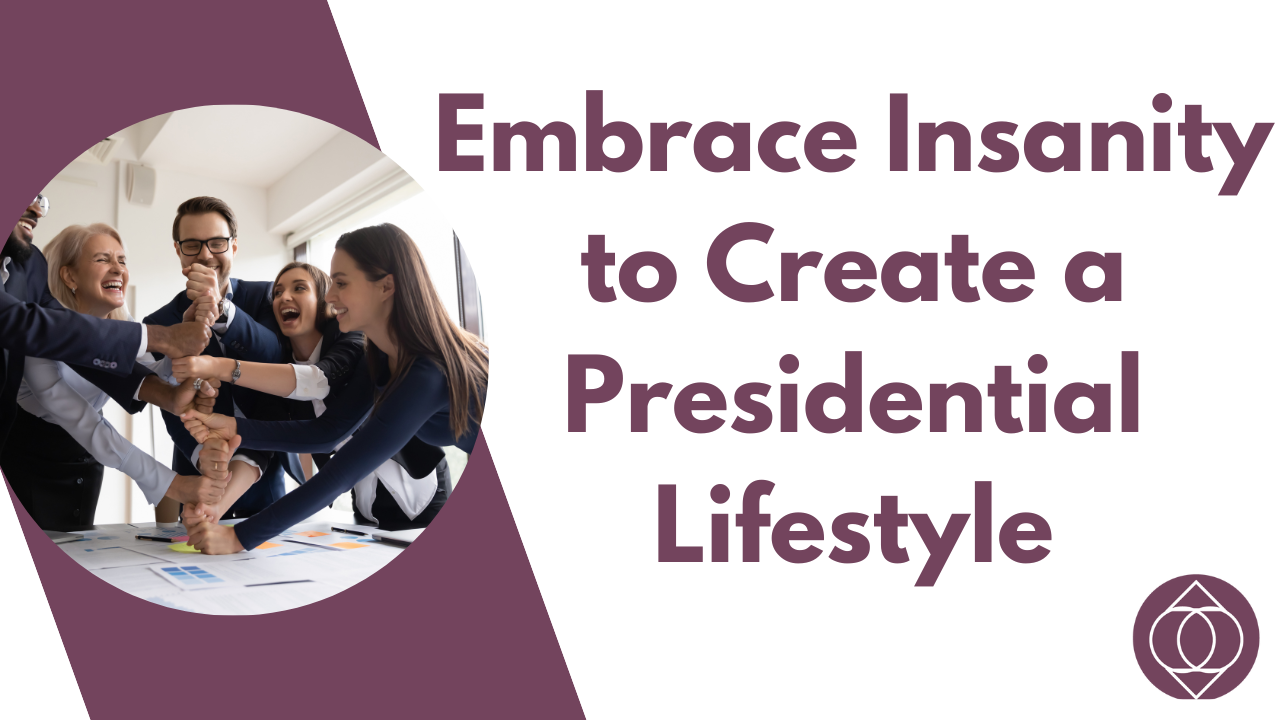
After working with wealthy business owners, celebrities, athletes, and even politicians, I've discovered the secret sauce to success. It's super simple, and you can try it at home with very little risk. The answer is "insanity" – allowing yourself to do the same thing while expecting a different result.
Every time an actor goes out for an audition, the result they want is to book the gig. This only happens a small percentage of the time. When an athlete sets out to become the champion, they may lose a game along the way, but they have to forget that ever happened and start the next game expecting to win.
You may have heard me say that doing the same thing expecting a different result is not the definition of insanity, it's the definition of humanity. We all do it. It's the way the brain is wired.
If you have a well-thought-out strategy, don't change it, just change your audience or the way you execute it. You may have to make a few tweaks along the way, but essentially, ri...

